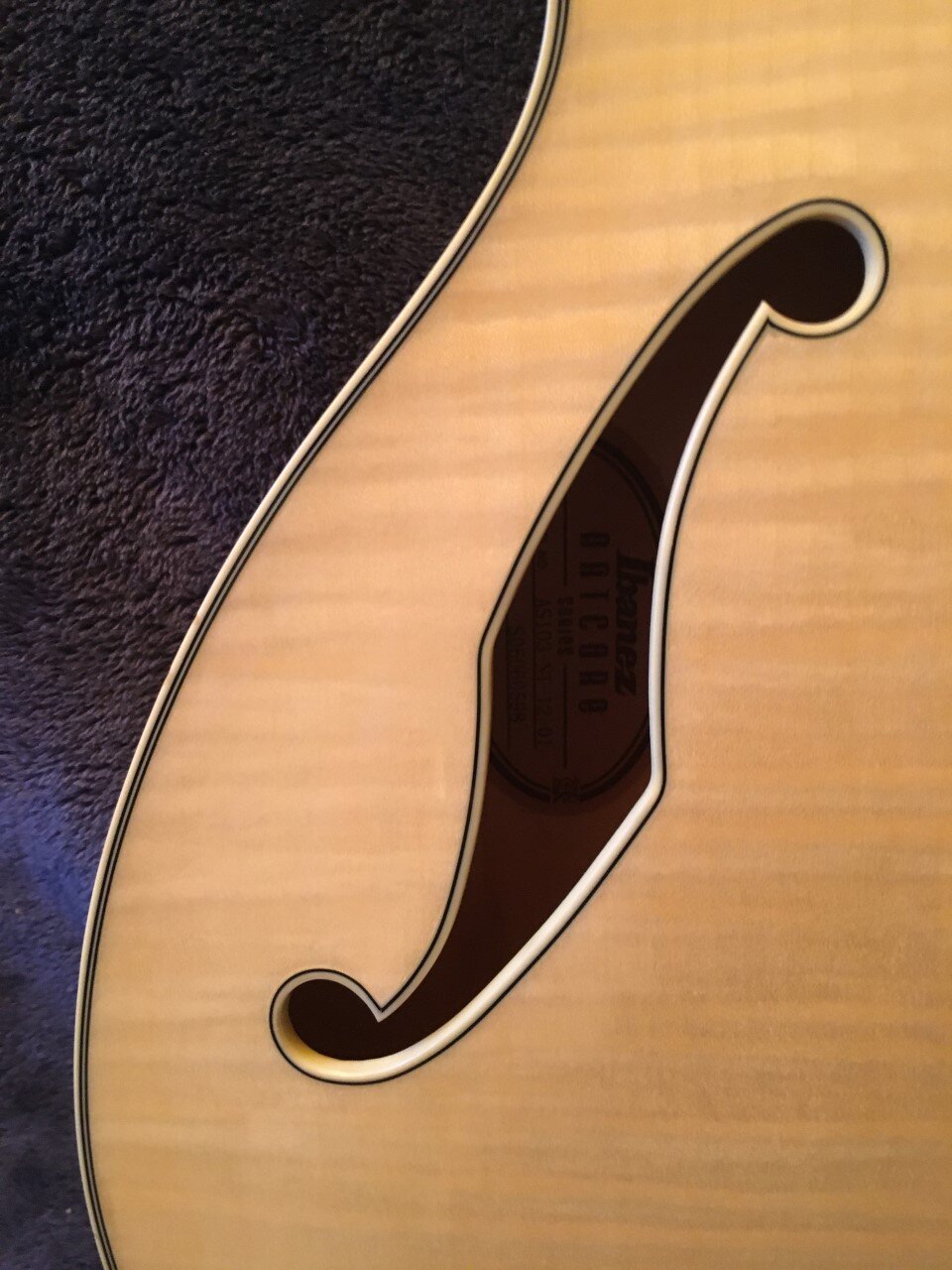Timber
Josh White deserves more recognition. He was a groundbreaking African American blues and folk artist who had a major impact on musicians for decades. White came from the humblest of beginnings, achieved fame and success overcoming incredible obstacles along the way, before being blacklisted for political reasons. His personal life story is made for a stage or screen adaptation. Though he was one of the first three folk musicians to be honored with a U.S. postage stamp in 1998 (the other two being Woody Guthrie and Lead Belly), there are many music lovers, even lovers of folk and blues music, who are largely unfamiliar with White.
Joshua Daniel White was born on February 11, 1914, in Greenville, South Carolina. He grew up in a religious household with four siblings. His father Dennis was a tailor and a minister. In 1921, a white bill collector came to Josh’s house and got into an altercation with Josh’s father. Josh’s father threw the man out of the house after the man spat on the floor. Soon after, five white police officers arrested Dennis White, beat him, tied him behind a horse and dragged him through town. Dennis White was left incapacitated and spent the rest of his life in a mental institution, where he died nine years later.
Shortly following this incident where Josh’s father was taken away, Josh left home to work as “lead boy” and “tambourine man” (a hype man of sorts) for John Henry “Big Man” Arnold (aka Blind Man Arnold). Arnold was a blind, black street musician who traveled throughout the South and into Texas. Josh was eight years old when he embarked on his adventure. In exchange for Josh’s services, Josh’s mother received a few dollars a week from Arnold. Josh was instructed by Arnold to go shoeless and wear tattered clothing to create sympathy from the audience during performances, a policy Josh would come to resent.
For the next eight years, Josh’s services were rented out to other blind street performers including Blind Blake, Blind Lemon Jefferson, Willie Johnson, Blind Joe Taggart, and Joe Walker. Josh learned guitar from all of them. The traveling conditions were rough, with Josh often sleeping in fields or horse stables. He was once mistaken for a fugitive, beaten and jailed. He witnessed tar and featherings, lynching, and a burning.
While traveling with Blind Joe Taggart in Chicago, fourteen-year-old Josh, who had become a very competent guitarist (and singer and dancer) was hired by Paramount Records producer Mayo Williams as a session guitarist. For two years, Josh saved up money from recording sessions until he was able to return home to Greenville to help support his mother and siblings. In 1930, American Record Company talent scouts tracked Josh White down and convinced his mother to sign a recording contract, with the understanding Josh would only be performing religious music. White moved to New York and recorded religious songs as Joshua White, and secular blues as “Pinewood Tom.”
While in New York, Josh married fellow singer Carol Carr in 1934. The couple raised five children in their home in the Sugar Hill section of Harlem. Two years after getting married, Josh cut his left hand badly. The wound became infected, and Josh lost all the feeling in his fingers. For a few years, he was forced to find work as an elevator operator, longshoreman, and building superintendent. He worked hard at rehabilitating his hand with exercise, and eventually he was able to play guitar again.
In 1939, Josh formed a band, Josh White and his Carolinians, with his brother and a few friends. The band played mostly spirituals. In 1940 he landed a role in a Broadway musical, John Henry. White played Blind Lemon Jefferson, alongside John Henry being played by Paul Robeson. The Broadway performance was the beginning of Josh’s acting career and it helped his musical career as well. White was signed by talent scout John Hammond to Colombia records, and later in 1940 Josh White and the Carolinians released Chain Gang, a somewhat controversial album full of social commentary. The album was the first “race record” to get substantial airplay on white radio stations, to the dismay of some white listeners.
Josh White began playing with other musicians, including Woody Guthrie and Lead Belly. White performed regularly in New York City clubs. White and Lead Belly had a 6-month engagement at the Village Vanguard, and White also began playing gigs regularly at the Café Society, the first integrated nightclub in the United States. He then teamed up with Libby Holman, a white female singer, and the two would tour together as the first interracial male and female duo in the United States. White became one of the first black sex symbols in the country, oozing chemistry onstage in an unbuttoned velvet shirt and silk slacks (a look Harry Belafonte would copy years later).
At the end of 1940 White was invited to perform at a concert at the Library of Congress to celebrate the 75th anniversary of the 13th Amendment to the Constitution of the United States, and in January of 1941 White performed at Franklin Roosevelt’s inauguration. White would become a friend to the Roosevelts, giving several command performances and visiting with the Roosevelts on Thanksgiving and Christmas at their home in Hyde Park. Josh White became Franklin Roosevelt’s closest black friend, and the two would discuss some of Josh’s more politically charged material, and the conditions blacks were enduring in the United States.
White would go on to perform regularly on national radio, and landed rolls in musicals, plays and films. He performed jazz with Billie Holliday and sang protest songs with Pete Seeger. In 1944, he had a huge hit single, “One Meatball” (about a man attempting to order a single meatball at a restaurant, all the man could afford). The song became the first million-selling record by a black artist. Following this success, White embarked on a tour of concert halls across the United States, again a first for a black artist.
Unfortunately, White’s career took a dramatic turn for the worse in 1950 when White decided, against the advice of friend and confidant Eleanor Roosevelt, to testify before the House Un-American Activities Committee. Though White had no real communist connections, he ended up being officially blacklisted by the right as someone who could not be trusted, and unofficially blacklisted by the left as someone who sold himself out by deciding to cooperate and testify in the first place. White was basically banned from television appearances, lost the contract to his radio show, and was no longer offered movie appearances. He decided to move to England and spent much of the first half of the 1950’s in London. He was still very popular in Europe, and was able to tour there, occasionally playing arenas in addition to theatres and clubs. White also hosted a radio show on the BBC, My Guitar is Old as Father Time.
White returned to the U.S. in the late 50’s and toured colleges and concert halls, but his health was beginning to decline. White suffered from psoriasis, calcium deficiency and emphysema, none of which were alleviated by heavy smoking and drinking. White suffered his first of three heart attacks in 1961.
In 1963, President John Kennedy ended Josh’s TV blacklisting, inviting Josh to perform on a CBS-TV civil rights special, “Dinner With the President.” This was followed by another national TV appearance later that year at the Lincoln Memorial, as part of Martin Luther King’s march on Washington. In the mid-60’s White performed protest songs with Odetta and Judy Collins and was invited to appear at the Newport Folk Festival in 1965. In 1966 White was in an automobile accident, but recovered and made a few more appearances on U.S. and Canadian television in the late 60’s. White died on September 5th, 1969, in a failed attempt to replace a heart valve, aged 55.
This week’s SOTW first appeared on White’s Chain Gang album in 1940. The version selected for this blog post is from a cleaner 1956 recording and appears on the Elektra release Josh at Midnight. The song has gone by several names over the years, including “Timber,” “Timber Ho,” and “Jerry the Mule.” Like many of the songs White performed, the song has roots that go back decades before any recorded version. There are similar songs with similar verses that can be found if one looks hard enough. The official writing credits for this version of “Timber” are Josh White with his friend and collaborator Sam Gary (that’s also Sam hitting those low notes in the vocals).
There are a few genius strategies employed by the “Timber” songwriters that storytellers should take note of. The first is that the song is told in the first person by a narrator, but the main subject of the song is not the narrator. This strategy gives a great deal of weight to the main character. “I’m not the guy, but I met the guy. Face to face.” As the listener, are you more likely to believe someone telling you about their own incredible feats, or about the incredible feats of someone they once encountered? (Side note: there is a lyric in the song where the narrator states “If it had-a been me, I’d-a killed that fool.” This is simply incorrect. You wouldn’t have done a damn thing narrator. That’s why you’re telling us the story, and someone else isn’t telling us a story about you.)
The second genius songwriting strategy employed in “Timber” is that the main character is an animal, an animal that has been mistreated and has had enough. Most animals are sympathetic characters by their very nature. A mistreated animal takes sympathy to a whole new level. I mean, what kind of deranged psychopath would lack sympathy for a mistreated, beaten animal?
The third genius strategy is the song is not about an animal at all, but about a man being mistreated on a chain gang. Because, after all, what kind of deranged psychopath would lack sympathy for a mistreated, beaten human?
7.28.22


